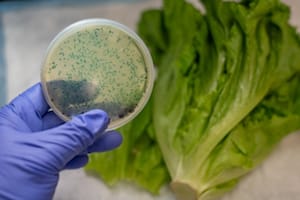New York Personal Injury Lawyers Explain Food Poisoning And Foodborne Illness Terminology
The following terms are used regarding food poisoning injuries and foodborne illness cases:
- Albumin: Albumin is a protein made by the liver. When the kidneys are functioning properly, there is almost no albumin in urine. Albumin levels can indicate how well the liver and kidneys are functioning.
- Anuria: Not able to pass urine.
- B. cereus: Bacillus cereus is a type of bacteria that produces toxins in the body. The toxins cause illnesses with diarrheal and emetic (vomiting) symptoms.
Organic chlorella powder, a powder version of algae cultivated for food supplements, was recently recalled due to possible Bacillus cereus contamination. It affected over 11 countries.
- Botulism: Clostridium botulinum, a type of bacterium, produces the toxin botulism. This toxin can cause paralysis or respiratory failure.
Taco Bell recently recalled their Salsa Con Queso product due to possible Botulism contamination. According to the CDC, you cannot smell or taste the botulism toxin, making it difficult to detect.

- Creatinine: Creatinine is a natural waste product from the body. Creatinine levels can indicate how well the kidneys are functioning.
- Cyclosporiasis: Cyclosporiasis is an intestinal infection caused by the parasite Cyclospora cayetanensis. It is spread through food contaminated by feces.
In 2018, the CDC reported an outbreak of Cyclosporiasis that has been linked to Del Monte Fresh Produce Vegetable Trays. Eight people were hospitalized as a result.

- Dialysis: Dialysis is a treatment for end-stage kidney failure that removes waste products, salt and excess water from the body.
- E. coli: Escherichia coli (E. coli) is a group of bacteria that can be found in foods and the intestines of animals. Some strains of E. coli cause illness.
- E. coli O157:H7: This is a strain of E. coli that is a foodborne pathogen. It can cause food poisoning through consumption of tainted food.
A food safety alert was issued in 2018 for the outbreak of E.Coli linked to romaine lettuce from the Central Coastal growing regions of California. The CDC warned to not eat romaine lettuce if you cannot identify exactly where it came from. As a result, many national fast food chains and supermarkets pulled all romaine lettuce from their shelves.

- Hemolytic Uremic Syndrome (HUS): HUS is a severe, life-threatening complication of the foodborne illness E. Coli. It is the most common cause of acute kidney failure.
- Hypertension: High blood pressure is a common condition in which the force of the blood against your artery walls is high enough that it may eventually cause health problems, such as heart disease.
- Kidneys: A pair of organs that excrete urine.
- Leukocytosis: Leukocytosis, or high white blood cell count, is an increase in disease-fighting cells (leukocytes) circulating in your blood. A count of more than 11,000 leukocytes in a microliter of blood in adults is generally considered a high white blood cell count.
- Microalbuminuria: This occurs when the kidney leaks small amounts of albumin into the urine. In advanced stages of kidney disease, you might lose more than 300 mg of albumin a day.
- Microbiology: A branch of science that focuses on microorganisms such as bacteria, viruses and fungi.
- Oliguria: Reduced urine output.
- Proteinuria: This is a condition in which urine contains an abnormal amount of protein. Proteinuria is a sign of chronic kidney disease (CKD), which can result from diabetes, high blood pressure and diseases that cause inflammation in the kidneys.
- Salmonella: This is a bacterium that lives inside the intestinal tracts of various animals. It is usually transmitted through foods that are contaminated with animal feces. The disease you get from salmonella bacteria is called salmonellosis.
Kellogg Company’s “Honey Smacks” cereal was recalled in 2018 for possible Salmonella contamination. 136 people were infected with the specific salmonella strain, with 34 people hospitalized for treatment.
Jed Dietrich, Esq. and his team of top rated lawyers personally review medical records of people who have been poisoned by food. Jed Dietrich, Esq. and his staff’s knowledge of medical terminology is incredibly helpful to the litigation process.
Call the Dietrich Law Firm P.C. immediately at (716) 839-3939 so that our aggressive, tenacious and hardworking personal injury lawyers can fight to obtain the best result for your personal injury claim in Buffalo, New York. We are available 24 hours a day, 7 days a week and there is never a fee until we WIN for you!
 Dietrich Law Firm P.C. Home
Dietrich Law Firm P.C. Home










